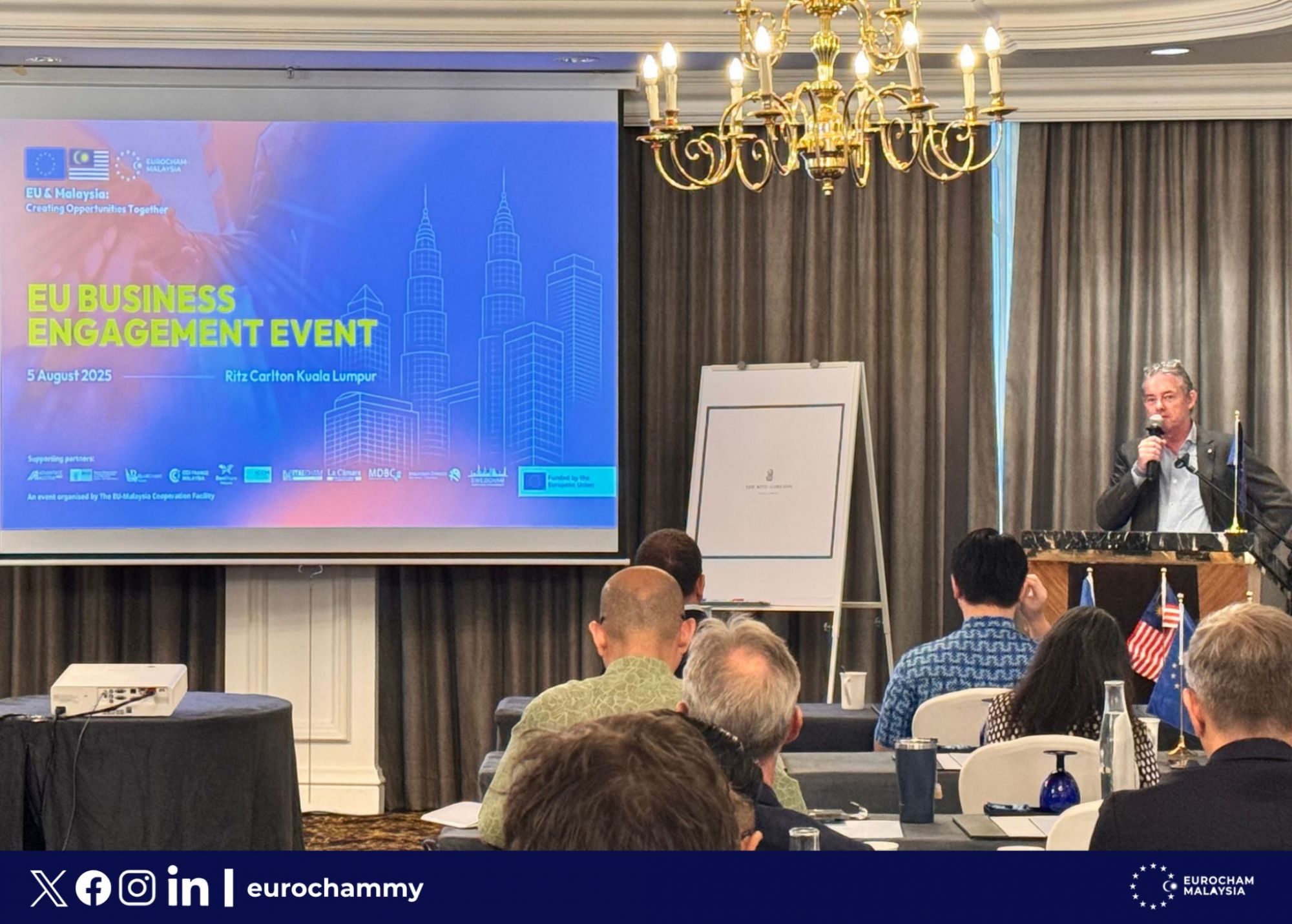KUALA LUMPUR: The European Union-Malaysia Chamber of Commerce and Industry (Eurocham Malaysia) has urged the Human Resources Ministry (MoHR) to reconsider the new policy on the recruitment of foreign workers and expatriates.
This was due to the impracticality of the requirements and impositions on the business community, it said.
Eurocham Malaysia said it is truly concerned by the announcement by Human Resources Minister Datuk Seri M. Saravanan on Oct 29 and the latest follow-up updates published by Social Security Organisation (Socso) on Oct 31, requiring companies to advertise job vacancies on the national employment portal, MYFutureJobs, for a period of 30 days as well as to obtain MYFutureJobs recommendation from Socso for the application to hire expatriates.
The European business community perceives that the latest measure will devastate Malaysia's position as an investment destination and will see companies turning away.
Despite the main rationale behind the new policy being to prioritise local job seekers, Eurocham Malaysia said the move would clearly risk the reputation and position of Malaysia being an international investment friendly destination, thus further impacting the local job market in the coming years.
Malaysia currently ranks 12th in the World Bank Doing Business 2020 Report amongst 190 economies worldwide, and the achievement was built over time with strong investor confidence and loyalty, it added.
"Malaysia has been well known for its frequent migration policy shifts, and yet today there are still many twists and turns in the hiring policy during the challenging pandemic period.
"We are genuinely concerned that the new requirement will further discourage quality European investors to establish a presence in Malaysia, due to diminished investor confidence and the lengthy hiring process for expatriates in the country," said Eurcham Malaysia chairman Oliver Roche.
He said EU-Malaysia relations have been cordial and have progressively strengthened over time.
Malaysia being one of the key economies in the Asean region and a preferred investment location for European businesses throughout the years, the European business community has been actively contributing to the Malaysian employment scene through local job creations, knowledge transfer, skills development as well as technological advancement, said Roche.
He added that with European investors bringing in an average of RM6.5 billion in foreign direct investment (FDI) annually, European companies have been committing an average of 300 approved manufacturing projects in Malaysia each year.
Looking at the European manufacturing projects (1,490 projects) approved over the past five years (2015-2019), these projects are expected to generate a total of 108,353 new employment opportunities specifically for local Malaysian talent, he said.
These job opportunities, said Roche, were now at risk, while not even considering future job creation and investments that are reconsidering and identifying other destinations.
Eurocham Malaysia deputy chairman Luciano Pezzotta, meanwhile, said EU-Malaysia ties have, in fact, extended even beyond trade and investments, as both regions have also established collaborative efforts in the areas of education, sustainable economic development as well as environment.
"Hence, highly-skilled expatriates play a vital role in knowledge and technology transfer during their course of duty in Malaysia," he said.
Pezzotta said, with valuable knowledge and technology transfer, Malaysia will gradually reduce its dependency on a low-skilled foreign workforce over the long run and increase the supply of local high-skilled workers for the industries with an upgraded economic value chain.
Eurocham Malaysia had joined an engagement session organised by the International Trade and Industry Ministry (MITI) on Oct 30 to discuss the new recruitment policy.
The chamber said it had shared its opinions and recommendations during the session. Among the things shared were its latest position paper "Eurocham Malaysia Highlights the Impracticality of the Requirements and Impositions on the Recruitment of Foreign Workers and Expatriates".
The chamber said the position paper aims to protect foreign expertise accessibility as well as to promote recruitment freedom, allowing European companies to recruit the best candidate regardless of nationality.
The paper also contains Asean best practices in governing the recruitment of foreign workers and expatriates, the expected negative impact from the identified recruitment measures by the Malaysian government to the economy as well as our suggestions and counter proposal.
"It is Eurocham Malaysia's constant drive to safeguard the dynamic interplay between domestic and European interest. We urge for an open dialogue with (Saravanan) to seek ways together in balancing the domestic priorities and international expectations," said the chamber's chief executive officer Sven Schneider.
Eurocham Malaysia said it sincerely hopes that MoHR would consider automatic exemptions to the positions of chairman, board of directors and company owners; C-level positions; EP1 and positions above RM10,000; internal transfers and secondments; and, re-employment and work permit renewal applications.
Last week the American Malaysian Chamber of Commerce (Amcham) had adopted a similar tone, saying it was greatly troubled by the new recruitment policy.
Amcham had said it feared that the government may not have considered how this action would impact FDI and decrease the motivation of multinational companies (MNCs) to do business in Malaysia, which ultimately paves the way to the very problem MoHR was trying to fix – the unemployment of Malaysians.
However, the Malaysian Employers Federation had defended the government's move saying it was a positive step to resolve unemployment issues, especially for fresh graduates.
MEF president Datuk Dr Syed Hussain Syed Husman had said it supported the move to give locals the priority as many local graduates were unemployed.
Employers intending to hire expatriates or foreign workers should first consider offering the vacancies to locals because this would ensure that Malaysians are given priority in employment opportunities, he had said in a statement.
Source by : New Straits Times
Photo Credit: New Straits Times






